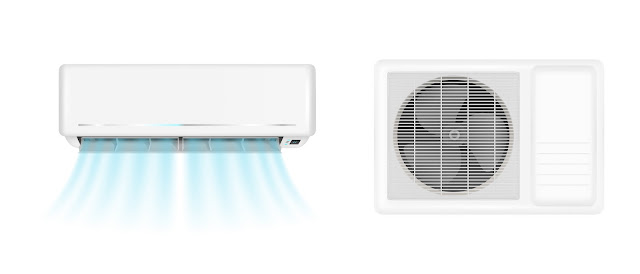Welcome to our comprehensive troubleshooting guide for air conditioners that are not cooling effectively. At Island Aire Of Southwest Florida Inc, we understand the frustration of dealing with a malfunctioning AC unit, especially during hot summer days. In this guide, we will walk you through a step-by-step process to help you identify and address the underlying issues that may be causing your air conditioner to underperform. By following our expert advice, you can regain the comfort of a cool and refreshing indoor environment.
1. Check the Thermostat
The thermostat plays a crucial role in maintaining the desired temperature in your home. Start by ensuring that it is set to the cooling mode and at a temperature lower than the current room temperature. If the thermostat is unresponsive or displaying incorrect readings, it may require recalibration or replacement. Consider seeking professional assistance to resolve any thermostat-related issues effectively.
2. Inspect the Air Filter
A clogged or dirty air filter can significantly hamper the cooling efficiency of your air conditioner. Locate the air filter, typically situated near the return air duct, and inspect its condition. If it appears dirty or clogged with debris, it is recommended to replace it with a new filter. Regularly replacing or cleaning your air filters is essential for optimal airflow and improved cooling performance.
3. Examine the Condenser Unit
The condenser unit, positioned outside your home, plays a vital role in the cooling process. Ensure that the unit is free from debris, such as leaves, grass, or dust, which can obstruct airflow. Clear any obstructions and clean the condenser fins gently using a soft brush or a vacuum cleaner. Additionally, verify that the condenser fan is operating smoothly without any unusual noises or signs of damage.
4. Assess the Refrigerant Levels
Proper refrigerant levels are essential for optimal cooling performance. Low refrigerant levels can indicate a leak in the system, which requires immediate attention from a professional HVAC technician. It is crucial to avoid attempting to recharge the refrigerant yourself, as it requires specialized knowledge and equipment. Contact a certified technician to inspect, detect, and repair any leaks, followed by a proper recharge of the refrigerant.
5. Evaluate the Air Ducts
The air ducts in your home are responsible for distributing cool air to various rooms. Inspect the ductwork for any visible leaks, loose connections, or obstructions. Damaged ducts can cause cool air to escape, leading to inefficient cooling. Seal any leaks with appropriate duct sealant and ensure that all connections are secure. If you encounter complex issues or suspect significant ductwork problems, consider consulting a professional.
6. Consider the Insulation
Proper insulation helps maintain the desired temperature within your home and prevents cool air from escaping. Check for any insulation gaps or areas of inadequate insulation, particularly around windows, doors, and attics. By improving insulation, you can optimize the cooling efficiency of your air conditioner and reduce energy consumption.
7. Verify the Fan Operation
The indoor fan in your air conditioner is responsible for circulating cool air throughout your home. If the fan is not functioning correctly, it can hinder the cooling process. Start by checking the fan settings on your thermostat to ensure it is set to the "Auto" or "On" position. If it's already set correctly but the fan is still not operating, it may indicate a problem with the fan motor or wiring.
To troubleshoot this, turn off the power to your air conditioning system and remove the access panel to access the fan motor. Carefully inspect the motor for any signs of damage or overheating. If you notice any burnt wires or visible damage, it is recommended to contact a professional technician to replace or repair the fan motor.
8. Consult with a Professional
If you have followed all the previous troubleshooting steps and your air conditioner is still not cooling effectively, it may be time to consult with a professional HVAC technician. Certified technicians have the expertise and tools to diagnose complex issues and provide appropriate solutions. They can perform in-depth inspections, identify underlying problems, and recommend the necessary repairs or maintenance required to restore your air conditioner's cooling performance.
A professional technician can also conduct regular maintenance on your air conditioning system, ensuring optimal performance and extending its lifespan. Regular maintenance includes tasks such as cleaning coils, lubricating moving parts, and checking refrigerant levels, among other essential procedures.
9. Conclusion
In conclusion, troubleshooting an air conditioner that is not cooling effectively requires a systematic approach to identifying and addressing potential issues. By following the steps outlined in this guide, you can increase the chances of resolving the problem and restoring your air conditioner's cooling efficiency.
Island Aire of Southwest Florida Inc is one of the most highly-trusted companies providing exceptional heating and air conditioning services to commercial and residential clients across Naples, Bonita Springs, and Cape Coral, FL. Call now at (239) 935-8880 to schedule an appointment today.
For further assistance or to schedule a professional inspection, feel free to contact Island Aire Of Southwest Florida Inc and our team of experts will be more than happy to assist you.

Comments
Post a Comment